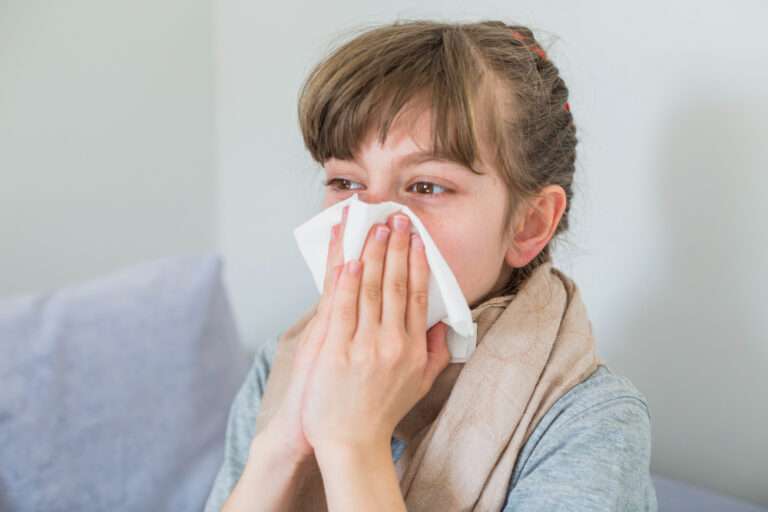Pediatric allergist
A pediatric allergist is a medical doctor who specializes in diagnosing and treating allergies, asthma, and immune system disorders in children. Their goal is to help children manage symptoms that arise from allergic reactions and immune-related issues, improving the overall quality of life for young patients. Here’s a breakdown of what pediatric allergists do, the types of conditions they treat, and the education required to become one:
What Does a Pediatric Allergist Do?
A pediatric allergist focuses on identifying and managing allergic conditions and immune system disorders in children, from newborns to teenagers. Their work involves:
- Diagnosing allergies and immune disorders: Using diagnostic tests, such as skin tests, blood tests, and sometimes food challenges, they determine what allergens (e.g., food, pollen, or dust) are causing reactions.
- Managing allergic diseases: They create treatment plans, which may include medication, allergy shots (immunotherapy), or lifestyle changes to reduce exposure to allergens.
- Addressing asthma and related conditions: Pediatric allergists often work with children who have asthma, as this condition is closely related to allergies.
- Offering preventive care: They provide education to both children and parents about how to manage allergies and asthma, avoid triggers, and deal with acute allergic reactions, such as anaphylaxis.
For Whom Does a Pediatric Allergist Provide Care?
A pediatric allergist works with children of all ages who experience:
- Allergies: Including food allergies, environmental allergies (pollen, pet dander, dust mites), and insect sting allergies.
- Asthma: Asthma is frequently linked with allergies and is a major area of focus for these specialists.
- Eczema (atopic dermatitis): A chronic skin condition that often coexists with allergies.
- Immune system disorders: These can include primary immunodeficiencies, which affect how the immune system responds to infections.
- Hay fever (allergic rhinitis): A common condition causing sneezing, runny nose, and itchy eyes in response to allergens like pollen.
What Conditions Do Pediatric Allergists Treat?
Some of the most common conditions treated by pediatric allergists include:
- Asthma: A chronic condition that inflames and narrows the airways, causing difficulty breathing.
- Food allergies: Reactions to foods such as peanuts, milk, eggs, or shellfish.
- Seasonal allergies: Reactions to pollen or other environmental factors that cause sneezing, itching, or other symptoms during certain times of the year.
- Eczema (atopic dermatitis): A skin condition often associated with allergies, resulting in dry, itchy skin.
- Hives (urticaria) and anaphylaxis: Skin reactions or potentially life-threatening allergic responses to certain allergens.
- Sinusitis and allergic rhinitis: Inflammation of the nasal passages due to allergies, often resulting in chronic sinus issues.
What Do Pediatric Allergists Look For?
When a pediatric allergist examines a child, they assess:
- Symptoms: Whether the child has signs of respiratory issues (e.g., wheezing, coughing), skin problems (e.g., hives, eczema), or gastrointestinal distress (e.g., diarrhea, stomach pain).
- Medical history: They look for family histories of allergies, asthma, or other immune disorders, as these can be hereditary.
- Triggers: Identifying what causes or worsens the child’s symptoms, including environmental factors, foods, or seasonal changes.
- Reactions: They assess the severity of allergic reactions, especially in cases of anaphylaxis, to determine appropriate emergency treatments like EpiPens.
How Long is Training to Become a Pediatric Allergist?
Becoming a pediatric allergist requires extensive education and training:
- Undergraduate education: A 4-year bachelor’s degree, often in a science-related field.
- Medical school: Another 4 years to earn a Doctor of Medicine (M.D.) or Doctor of Osteopathic Medicine (D.O.) degree.
- Pediatric residency: After medical school, the individual must complete a 3-year residency in general pediatrics.
- Allergy and immunology fellowship: Following the pediatric residency, the doctor completes an additional 2-3 years of specialized training in allergy and immunology, focusing on both adult and pediatric patients.
In total, it takes approximately 13-14 years of education and training to become a certified pediatric allergist.
What Symptoms Do Pediatric Allergists Treat?
Pediatric allergists treat a wide range of symptoms caused by allergic reactions and immune disorders, including:
- Respiratory symptoms: Wheezing, coughing, shortness of breath, and chest tightness due to asthma or allergies.
- Skin issues: Itchy rashes, hives, eczema, and swelling.
- Digestive problems: Stomach cramps, vomiting, or diarrhea triggered by food allergies.
- Sinus problems: Runny nose, nasal congestion, postnasal drip, and frequent sinus infections due to allergic rhinitis or sinusitis.
- Severe allergic reactions: Anaphylaxis, a life-threatening reaction that can cause swelling of the throat, difficulty breathing, and a drop in blood pressure.
Specialization Areas
Pediatric allergists often specialize in:
- Food allergies: Diagnosing and managing children with food allergies and offering guidance on dietary restrictions and emergency treatments.
- Asthma management: Helping children with asthma maintain proper lung function through medication, lifestyle changes, and monitoring.
- Immunotherapy: Offering treatments like allergy shots to gradually desensitize the immune system to certain allergens.
- Chronic sinusitis and ear infections: Treating recurrent sinus and ear infections that are often linked to underlying allergies.
In conclusion, pediatric allergists play a vital role in managing and treating conditions that impact a child’s immune system and respiratory health. Their work helps children lead healthier, more comfortable lives by controlling symptoms that could otherwise limit daily activities or affect long-term well-being.
Allergy medicines for children
------------From our Sponsors------------









